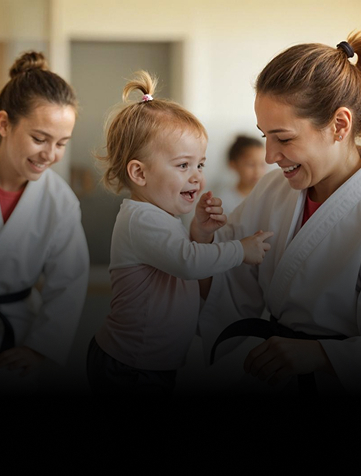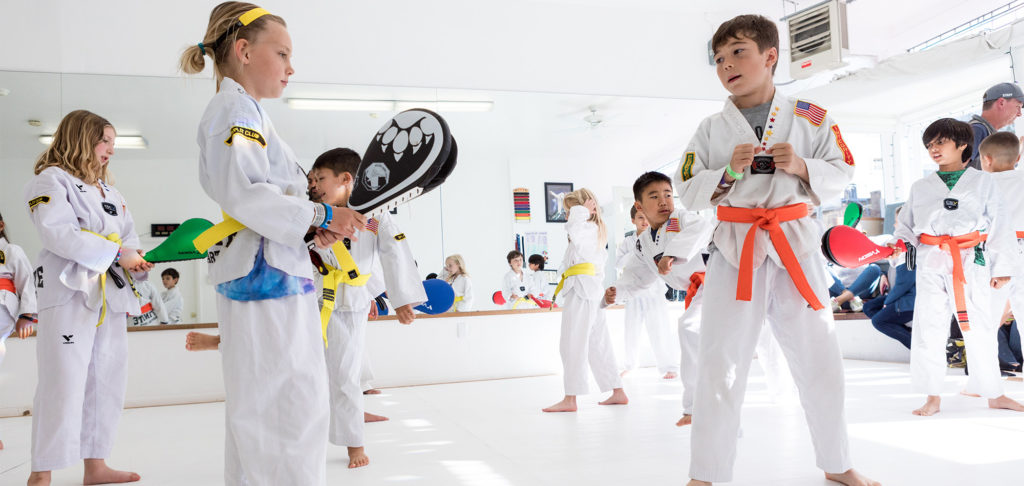Martial Arts for Kids – More Than Just Martial Forms, It’s Character Development
Martial Arts for Kids – More Than Just Martial Forms, It’s Character Development
Blog Article
How Martial Arts for Kids Can Boost Self-confidence and Discipline in Youthful Martial Artists
Karate for children offers a distinct chance to develop self-confidence and self-control in young martial artists. As they learn brand-new methods and face difficulties, they not only get skills but additionally establish a strong feeling of self-regard. This organized setting urges them to appreciate the trip of enhancement. But how does this training convert into their daily lives? Discover the deeper links that make karate even more than simply a sport.
The Importance of Confidence in Youth Development
Self-confidence is a necessary structure block in childhood development. When you nurture your youngster's self-worth, you equip them to deal with difficulties, take threats, and share themselves easily. Kids with self-confidence are more prepared to check out brand-new tasks and social circumstances, which can result in long-term relationships and valuable experiences.Encouraging your kid to tip out of their comfort area cultivates strength. They learn that failing isn't completion but instead a tipping rock to success. By commemorating their success, regardless of just how tiny, you assist them recognize their capacities and worth.In this trip, assistance and positive reinforcement from you play a crucial role. Whether it's with praise or just being existing, your participation increases their confidence. As they expand, this confidence ends up being a long-lasting property, outfitting them to navigate both difficulties and opportunities with a solid feeling of self.
Exactly How Karate Instructs Self-control and Emphasis
Martial arts aids you construct self-control and emphasis with its structured training routine. As you exercise mindfulness during each session, you'll find out to concentrate far better both on and off the floor covering. Plus, establishing and achieving objectives in karate reinforces your ability to remain committed and mindful.
Structured Training Routine
While you engage in karate training, you'll swiftly uncover how a structured regimen instills technique and focus in young practitioners. Each course follows a details format, including warm-ups, technique method, and sparring. This consistency teaches you to dedicate and appreciate the procedure to improvement. As you find out techniques and forms, you establish a feeling of duty for your very own progress.The structured atmosphere urges you to establish goals, whether understanding a new belt or perfecting a kata. You'll locate that remaining focused during courses and drills hones your focus. The discipline you cultivate in karate prolongs past the dojo, positively influencing your schoolwork and everyday routines. Each session strengthens the relevance of commitment, assisting you grow right into a much more regimented individual.
Mindfulness in Method
As you exercise martial arts, you'll discover that mindfulness becomes an important part of your training. Each move requires your complete interest, helping you stay concentrated on today moment. You'll find out to disregard disturbances and focus on your breathing, motions, and intentions. This heightened awareness develops your reflexes and boosts your discipline.During sparring or forms, you'll find the significance of being emotionally present - Karate Salisbury MD. You'll observe just how this focus not only enhances your strategy however also builds your confidence. By exercising mindfulness in martial arts, you cultivate perseverance and strength, important characteristics that extend beyond the dojo. In this way, martial arts educates you to harness your mind, helping you establish a self-displined method to difficulties both on and off the floor covering

Goal Setting Techniques
Establishing goals in martial arts isn't practically earning belts; it's a powerful method to cultivate discipline and emphasis. When you establish certain, achievable targets, you create a roadmap for your progression. As an example, rather than just aiming to boost your kicks, try focusing on mastering a certain strategy every month. This technique maintains you determined and engaged.Breaking down bigger objectives right into smaller, convenient steps assists you track your progression and celebrate small triumphes along the method. Whether it's refining your position or increasing your sparring endurance, every goal enhances your commitment. As you attain these goals, you'll construct confidence in your abilities and develop a solid feeling of discipline that extends past the dojo into day-to-day life.
Structure Resilience Through Martial Arts
Martial arts, especially martial arts, provides youngsters a distinct possibility to build resilience in a helpful atmosphere. In courses, they encounter difficulties that push their restrictions, whether it's mastering a brand-new strategy or competing with a partner. Each obstacle, like a missed kick or a shed suit, ends up being a chance to find out and grow.As they practice, kids discover to embrace pain and maintain trying, even when points obtain difficult. They discover that failure isn't completion; it's part of the trip. This mindset helps them recover more powerful, not just in the dojo, but in everyday life.With each obstacle they overcome, your kid builds confidence in their capability to take on barriers, fueling their determination. Via karate, they'll understand that durability isn't just about physical strength; it has to do with psychological grit and willpower, encouraging them to deal with whatever life tosses their means.
The Function of Regard in Martial Arts Educating
Respect is a foundational concept in karate training, cultivating a culture of discipline and sociability among pupils. When you step onto the dojo floor, you're not simply learning strategies; you're also learning to respect your instructors, peers, and the art itself (Karate Salisbury MD). Bowing at the start and end of class isn't just a procedure; it signifies your acknowledgment of others' initiatives and dedication.As you create common respect, you'll locate it boosts your understanding experience. You'll pay attention a lot more diligently to your trainer and gain insights from fellow trainees. This atmosphere urges constructive criticism and assistance, enabling everybody to expand together.Moreover, respect grows self-control. Recognizing the value of tough work and humbleness helps you remain concentrated on your training. Consequently, this regard converts into your everyday life, boosting your interactions and connections outside the dojo. With karate, you find out that regard is essential for individual growth and neighborhood building
Attaining and setting objectives Success in Martial arts

Social Abilities and Synergy in the Dojo
While training in the dojo, children normally develop vital social abilities and teamwork abilities. As they exercise along with peers, they discover to interact properly, share area, and assistance one another. Each course presents opportunities for collaboration, whether it's throughout partner drills or group exercises. This team effort promotes friendships and produces a sense of belonging, making the dojo a nurturing environment.Kids likewise obtain beneficial dispute resolution abilities. When they encounter challenges, such as differences during sparring, they find out to navigate these situations constructively. They practice persistence and compassion, recognizing that every person has different toughness and weaknesses.Moreover, joining group activities cultivates a sense of liability. You'll see your child finding out to depend on colleagues and take obligation for their function in a team. These experiences not only enhance their fighting styles journey yet likewise furnish them with social tools they'll carry into other locations of life.

The Long-Term Perks of Karate Beyond Childhood Years
As youngsters mature and shift into the adult years, the advantages of martial arts prolong much past the dojo. You'll discover that the technique and emphasis found out via karate can translate into your scholastic and professional life. Setting and attaining goals in fighting styles fosters a strong work values, which can press you to succeed in any kind of endeavor.Moreover, the self-confidence acquired from sparring and mastering strategies can enhance your self-worth, helping you take on obstacles head-on. This durability ends up being very useful as you encounter the uncertainties of adulthood.Additionally, the social skills developed through synergy and camaraderie in the dojo can lead to much better partnerships in both expert and personal spheres. You'll find out to connect properly, resolve conflicts, and develop a supportive network.Ultimately, karate forms not just competent martial musicians, yet all-round people all set to handle the globe.
Regularly Asked Inquiries
What Age Is Best to Beginning Martial Arts for Kids?
You can begin karate as very early as age four or 5, however it often depends on your kid's maturity and interest. Discovering a course that suits their age and power degree makes a huge distinction.
Are There Any Kind Of Health Advantages From Practicing Karate?
Yes, practicing karate deals various health advantages. You'll boost your toughness, sychronisation, and flexibility while enhancing cardiovascular fitness. And also, it improves focus and mental health, making it a superb selection for total physical and mental health.
Just How Commonly Should Children Participate In Martial Arts Courses?
You should useful reference encourage your kids to participate in karate courses at least a couple of times a week. Uniformity helps them learn methods successfully and establish abilities, making their experience extra enjoyable and rewarding over time.
Can Karate Assist With Managing Anxiety in Children?
Yes, karate can help take care of anxiousness in youngsters. It teaches focus and self-constraint while supplying a safe electrical outlet for power. You'll see your kid expanding a lot more confident and tranquil as they exercise routinely.
What Gear Is Needed for Kids Starting Karate?

Report this page